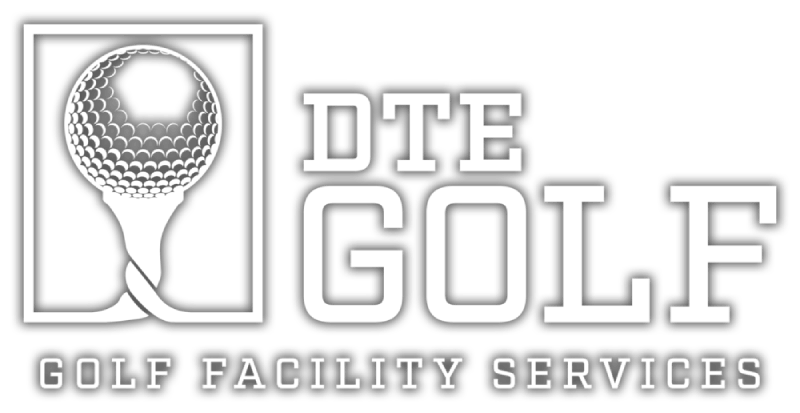Nematodes & Nematicides
For high-quality golf play, a firm and smooth healthy green turf is necessary to ensure a golf course will provide good ball speed. These qualities get affected due to a common plant parasite species in the southeastern states of the country called nematodes. Despite their prevalence, nematodes are often challenging to recognize and control.
Cultural practices can be used as preventive measures, and biological control methods can be used when the infestation is small. But when the infestation becomes severe, chemical control is required, and this is where nematicides come into play. Nematicides are chemical agents used to control nematodes. Nematicides can be highly toxic and should only be applied by trained and licensed applicators who have the knowledge required to ensure safe and effective application.
Types of Turf Nematodes
Lance Nematodes
Lance nematodes are migratory endoparasites found in the soils and inside the roots. Some lance nematodes move into and out on the grass. They are also found within the roots. Systemic nematicides are more effective on this type of nematode in the soil, but those inside roots will be unaffected by nematicides until nematodes exit the root. To effectively control lance nematodes, nematicides' contact needs to stay in the soil for a long time or be applied frequently so that nematodes' living roots get exposed to it over time.
Sting Nematodes
Sting nematodes are ectoparasites which means that they feed on the grassroots while keeping their bodies in the soil and inserting only their stylet deep into the root tissue. They typically feed on root tips which causes the roots to stop growing. Because sting nematodes affect root growth, the damage caused by them displays symptoms similar to water and nutrient deficiencies in the soil. These symptoms include wilting grass, stunted growth, increased weed invasion and irregular patches of grass.
As sting nematodes spend their entire life in the soil, they can be tackled through direct exposure to contact nematicides or by applying systemic nematicides that will get ingested by the sting nematodes when they feed on the roots. An effective nematicide for sting nematodes is able to penetrate through thatch to go deep into the soil because during summer, these ectoparasites reside deeper in the soil (up to 6 inches).
Root-Knot Nematodes
Root-knot nematodes are sedentary endoparasites which means they penetrate through the grassroots with their whole bodies, and then start releasing hormones to create specialized feeding sites. They will remain at these feeding sites for their entire lives, hence the term, ‘sedentary’.
Root-knot infestation can be identified by the formation of root galls which are easier to identify on most crops, but for turf grasses, the roots need to be dissected horizontally to check for root gall formation. Some of the symptoms of root-knot nematodes are rotted and darkened roots, chlorotic turf areas, reduced response to irrigation, and fungicide or fertilizer.
Female root-knot nematodes lay eggs in masses inside the root issue or at the root tips. The juveniles that hatch from these eggs enter into another root near them. Thus the root-knot nematode remains outside the turf grass root only for a short period of time in its entire life.
Contact nematicides will not be effective against root-knot nematodes. Systemic nematicides will be the best option to tackle these sedentary ectoparasites.
Nematode Control
Cultural practices like increasing the mowing height, deep and infrequent irrigation of the grass, using light equipment for mowing and rolling the turf to reduce compaction of soil, proper and balanced fertilization and frequent aeration of the soil is recommended to prevent nematode damage. But this is a preventive and long-term methodology. When the damage due to nematodes becomes too severe, chemical intervention is required.
One popular chemical nematicide for effective control is Curfew Soil Fumigant. It is injected into the soil in a liquid form, and the active ingredient present in it then volatilizes and moves throughout the soil in the gas form. The active ingredient in Curfew Soil Fumigant is 1,3-dichloropropene (1,3-D).
While Curfew does provide effective control of most nematodes, it is registered for approved use in only five U.S. states, two of which are Florida and South Carolina. While Curfew is a very effective nematicide, it is effective because it is a highly concentrated and strong chemical mix. Due to the health concerns of 1,3-dichloropropene, there are other safer options mentioned below.
Safer Alternatives to Curfew Soil Fumigant
Indemnify®
Indemnify® is a product by Bayer, and its active ingredient is fluopyram. Indemnify® is a registered product labeled for approved use in all turf types, and this includes athletic fields and golf courses. Indemnify® has a good residual ability and therefore can stay in the soil for many months after application and provide nematode control.
Indemnify® has been proven to provide excellent control against sting and root-knot nematodes, but there is no trial test proof of its effectiveness against lance nematodes.
Nimitz Pro G
Nimitz Pro G is a product by Quali-Pro. It is a granular formulation of fluensulfone, which has a relatively new chemical structure. Fluensulfone acts as both systemic and contact nematicide and therefore provides nematode control in the soil as well as in the roots of the grass. Fluensulfone has a shorter residual activity, and therefore multiple applications will be required. Frequent lower rate applications are seen to work better than infrequent higher rate applications.
Lab and field tests have shown fluensulfone to provide effective control against lance, sting and root-knot nematicides.
Conclusion
Nematodes can be very minor, but left untreated and without long-term preventative methods actively being executed on the course, nematodes can become a big problem. But, even with prevention, this sometimes is not full immunity to nematodes. Things happen and nematodes can be treated. To form the best treatment plan, reach out to DTE Golf®. We offer complete golf course management services to ensure your turf stays healthy and green.


